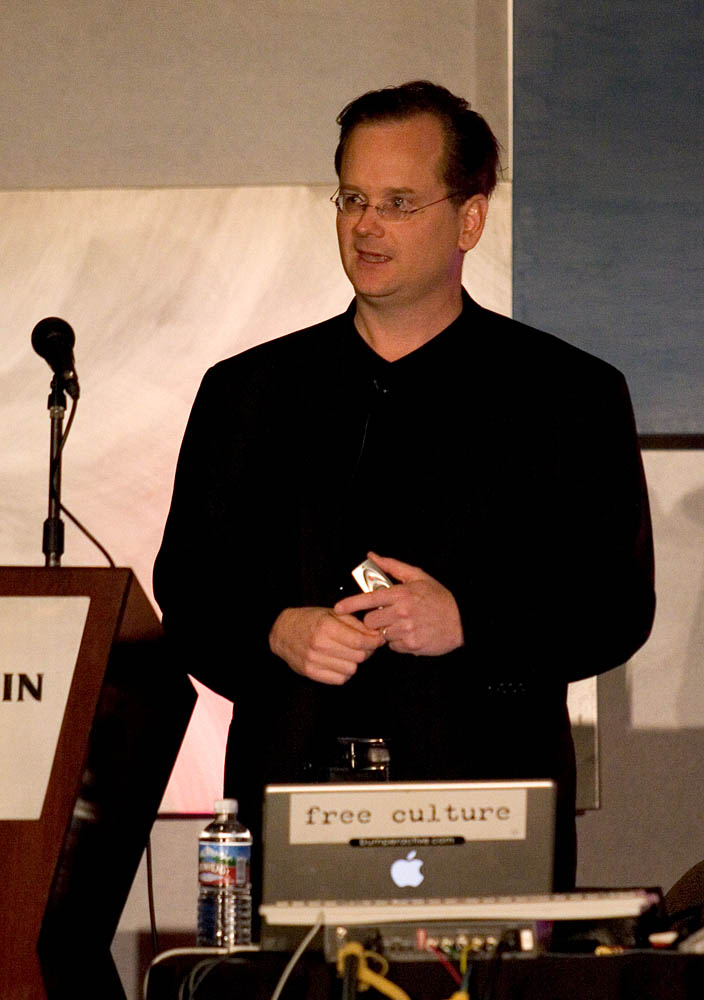|
Free Culture (other)
Free Culture may refer to: * ''Free Culture'' (book) by Lawrence Lessig * Free-culture movement, a social movement for free culture (inspired partly by the book) * Students for Free Culture, formerly FreeCulture.org, an international student organization supporting free culture See also * Open society, a concept originally developed by philosopher Henri Bergson and then by Austrian and British philosopher Karl Popper * Free content, any kind of functional work, artwork, or other creative content, which meets the free content definition, having no significant legal restriction relative to people's freedom to use, distribute copies, modify, and to distribute derived works of the content * Creative Commons Creative Commons (CC) is an American non-profit organization and international network devoted to educational access and expanding the range of creative works available for others to build upon legally and to share. The organization has releas ..., a non-profit organization he ... [...More Info...] [...Related Items...] OR: [Wikipedia] [Google] [Baidu] |
Free Culture (book)
''Free Culture: How Big Media Uses Technology and the Law to Lock Down Culture and Control Creativity'' (published in paperback as ''Free Culture: The Nature and Future of Creativity'') is a 2004 book by law professor Lawrence Lessig that was released on the Internet under the Creative Commons Attribution/Non-commercial license on March 25, 2004. This book documents how copyright power has expanded substantially since 1974 in five critical dimensions: *duration (from 32 to 95 years), *scope (from publishers to virtually everyone), *reach (to every view on a computer), *control (including "derivative works" defined so broadly that virtually any new content could be sued by some copyright holder as a "derivative work" of something), and *concentration and integration of the media industry. It also documents how this industry has successfully used the legal system to limit competition to the major media corporations through legal action against: * College students for close to ... [...More Info...] [...Related Items...] OR: [Wikipedia] [Google] [Baidu] |
Free-culture Movement
The free-culture movement is a social movement that promotes the freedom to distribute and modify the creative works of others in the form of free content or open content without compensation to, or the consent of, the work's original creators, by using the Internet and other forms of media. The movement objects to what it considers over-restrictive copyright laws. Many members of the movement argue that such laws hinder creativity. They call this system " permission culture". The free-culture movement, with its ethos of free exchange of ideas, is aligned with the free and open-source-software movement, as well as other movements and philosophies such as open access (OA), the remix culture, the hacker culture, the access to knowledge movement, the copyleft movement and the public domain movement. History Precursors In the late 1960s, Stewart Brand founded the '' Whole Earth Catalog'' and argued that technology could be liberating rather than oppressing.. He coined th ... [...More Info...] [...Related Items...] OR: [Wikipedia] [Google] [Baidu] |
Students For Free Culture
Students for Free Culture, formerly known as FreeCulture.org, is an international student organization working to promote free culture ideals, such as cultural participation and access to information. It was inspired by the work of former Stanford, now Harvard, law professor Lawrence Lessig, who wrote the book '' Free Culture'', and it frequently collaborates with other prominent free culture NGOs, including Creative Commons, the Electronic Frontier Foundation, and Public Knowledge. Students for Free Culture has over 30 chapters on college campuses around the world, and a history of grassroots activism. Students for Free Culture is sometimes referred to as "FreeCulture", "the Free Culture Movement", and other variations on the "free culture" theme, but none of those are its official name. It is officially Students for Free Culture, as set for in the new bylaws that were ratified by its chapters on October 1, 2007, which changed its name from FreeCulture.org to Students for Fre ... [...More Info...] [...Related Items...] OR: [Wikipedia] [Google] [Baidu] |
Open Society
Open society (french: société ouverte) is a term coined by French philosopher Henri Bergson in 1932, and describes a dynamic system inclined to moral universalism.Thomas Mautner (2005), 2nd ed. ''The Penguin Dictionary of Philosophy'' Open society" entry p. 443. Bergson contrasted an open society with what he called a closed society, a closed system of law, morality or religion. Bergson suggests that if all traces of civilization were to disappear, the instincts of the closed society for including or excluding others would remain. The idea of an open society was further developed during World War II by the Austrian-born British philosopher Karl Popper. Popper saw it as part of a historical continuum reaching from the organic, tribal, or closed society, through the open society (marked by a critical attitude to tradition) to the abstract or depersonalized society lacking all face-to-face interaction transactions. History Popper saw the classical Greeks as initiating the ... [...More Info...] [...Related Items...] OR: [Wikipedia] [Google] [Baidu] |
Creative Commons
Creative Commons (CC) is an American non-profit organization and international network devoted to educational access and expanding the range of creative works available for others to build upon legally and to share. The organization has released several copyright licenses, known as Creative Commons licenses, free of charge to the public. These licenses allow authors of creative works to communicate which rights they reserve and which rights they waive for the benefit of recipients or other creators. An easy-to-understand one-page explanation of rights, with associated visual symbols, explains the specifics of each Creative Commons license. Content owners still maintain their copyright, but Creative Commons licenses give standard releases that replace the individual negotiations for specific rights between copyright owner (licensor) and licensee, that are necessary under an " all rights reserved" copyright management. The organization was founded in 2001 by Lawrence Lessig, ... [...More Info...] [...Related Items...] OR: [Wikipedia] [Google] [Baidu] |

.jpg)